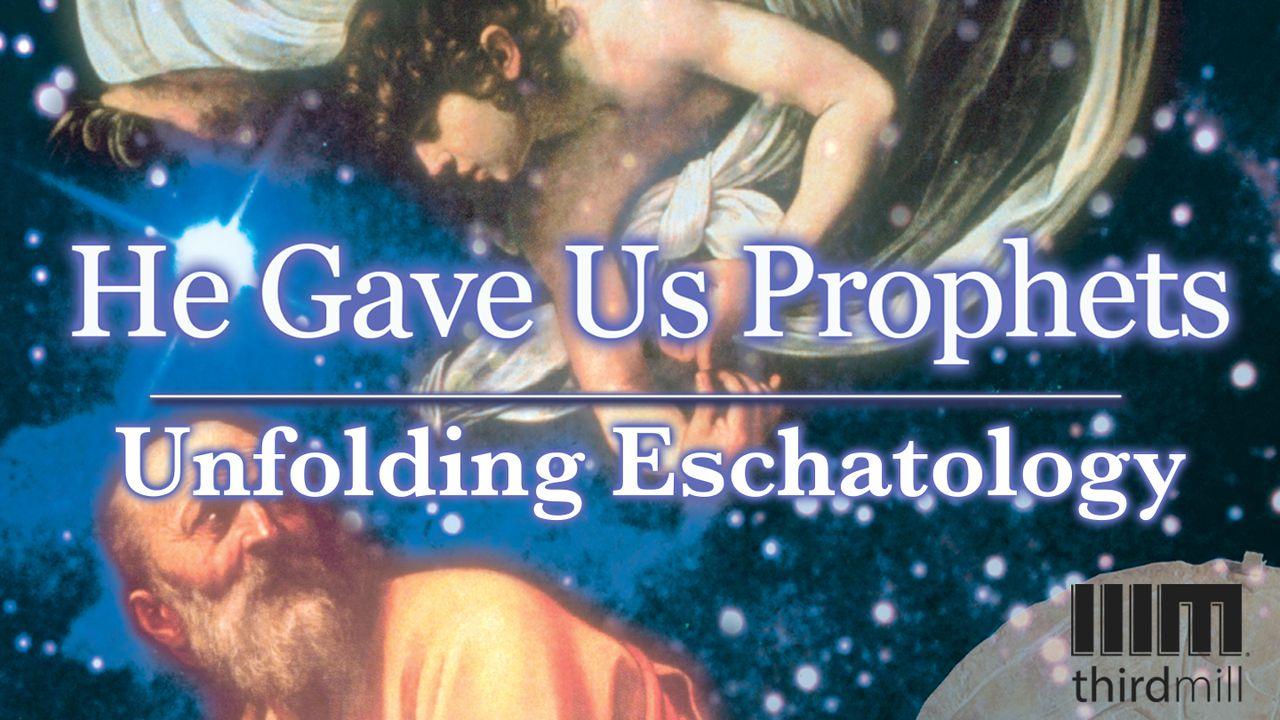He Gave Us Prophets: Unfolding EschatologyExemplo

Later Prophetic Insight – Daniel: Daniel 9:1-24
Perhaps Daniel’s most important contribution to prophecy was his famous vision of the seventy weeks of years in Daniel 9. This passage is an autobiographical account of an insight Daniel received around the year 539 when Cyrus gave his edict for the Israelites to return to the Land of Promise.
Daniel 9 begins with an introduction in verses 1-3. There Daniel reports that he was reading the prophecy of Jeremiah about the seventy years of exile. In verse 2 we read these words:
I, Daniel, understood from the Scriptures, according to the word of the Lord given to Jeremiah the prophet, that the desolation of Jerusalem would last seventy years.
Now Daniel knew that Jeremiah said that the exile would last only seventy years, but instead of rejoicing, as we might expect Daniel to do, verse 3 tells us that Daniel did something quite different:
So I turned to the Lord and pleaded with him in prayer and petition, in fasting, and in sackcloth and ashes.
Even though we might have expected Daniel to be happy that the seventy years of Jeremiah were over, instead he turned to the Lord in sackcloth and ashes seeking the favor of God.
In verses 4-19 we find a summary of Daniel’s prayer. In this prayer, he deals with a very serious problem. Jeremiah’s seventy years are complete, but the people have not repented of their sins. As he says in verses 13 and 14:
All this disaster has come upon us, yet we have not sought the favor of the Lord our God by turning from our sins and giving attention to your truth… we have not obeyed him.
Moses announced that exile would be reversed only when the people of God repented from their sins, but there was an unexpected intervening historical contingency here. The Israelites had gone into exile, but they still had not repented of their sins, and as a result, significant changes occurred in the ways that God would unfold the eschaton.
Daniel closed his prayer with a plea for mercy. Because the people had not repented of their rebellion, Daniel asked God simply to return the people just for his own glory. We read in verses 17 and 18:
For your sake, O Lord, look with favor on your desolate sanctuary. Give ear, O God, and hear; open your eyes and see the desolation of the city that bears your Name. We do not make requests of you because we are righteous, but because of your great mercy.
Daniel hoped against all hope that God would restore his people, despite the fact that they had not repented of their sins.
The remainder of Daniel 9:20-27 consists of God’s response to Daniel’s prayer. The angel Gabriel comes from God with a message. He tells Daniel this in 9:24:
Seventy “sevens” are decreed for your people and your holy city to finish transgression, to put an end to sin, to atone for wickedness, to bring in everlasting righteousness, and to seal up vision and prophecy and to anoint the most holy.
Put simply, Gabriel says that the exile had been extended from seventy years, according to Jeremiah, to seventy “sevens” of years, or about 490 years. Because the people had refused to repent, God decided to multiply the length of the exile seven times over. As God said in Leviticus 26:18:
If after all this you will not listen to me, I will punish you for your sins seven times over.
God delayed the restoration of Israel, and control of the Land of Promise was passed from one Gentile empire to another and to another and to another, until the kingdom of God came in Christ.
Escritura
Sobre este plano

This reading plan focuses on how prophetic eschatology developed through the historical periods of: Moses, the early prophets, the later prophets, and the New Testament.
More

